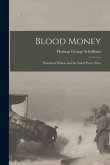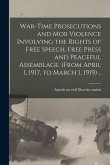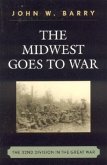Exploring Minnesota's history from the beginning of the European war in 1914 through the 1920 U.S. election provides a unique vantage point from which to assess the war's impact on American society. Americans went to war in 1917 not only against Germany but also against each other. The controversial decision to send an army to France came during a contentious time when farmers and workers challenged the wealthy, African Americans struggled against Jim Crow, women campaigned for suffrage, and millions crusaded against alcohol. In The War at Home, historian Greg Gaut focuses on the lives of individual Minnesotans to tell the dramatic story of this period, when the North Star State experienced bitter polarization, nativism, flagrant disregard for democratic norms, and intense, sometimes violent, confrontations. The Minnesota Commission of Public Safety ruled the state with an iron hand during the war. Led by John F. McGee, the commission pursued a "loyalty" campaign against trade unions, the Nonpartisan League, the Socialist Party, and the Industrial Workers of the World. McGee's most prominent adversary was Charles A. Lindbergh Sr., whom the Nonpartisan League nominated to challenge the governor in the fiercely contested 1918 primary. Although Minnesota's home front experience was the product of a particular confluence of events and personalities, it raises issues about how democracy can give way to authoritarianism when economic inequality, anti-immigrant nationalism, and racism hold sway.
Hinweis: Dieser Artikel kann nur an eine deutsche Lieferadresse ausgeliefert werden.
Hinweis: Dieser Artikel kann nur an eine deutsche Lieferadresse ausgeliefert werden.








